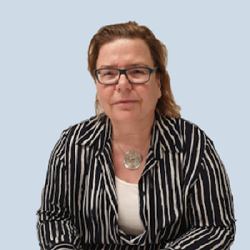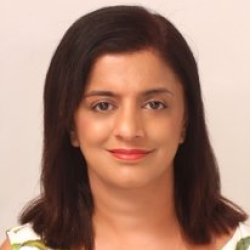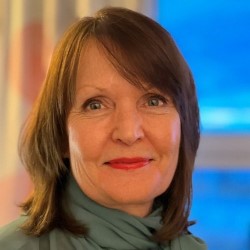Speakers
Our confirmed speakers include the following world-leading researchers, with more speakers to be announced soon:
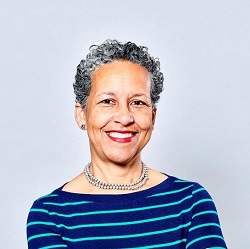 |
Professor Avan Aihie Sayer, Newcastle University, UK Professor Avan Aihie Sayer is William Leech Professor of Geriatric Medicine at Newcastle University, Honorary Consultant in Older People’s Medicine at Newcastle Hospitals and Director of the National Institute for Health and Care Research (NHIR) Newcastle Biomedical Research Centre. She has recently been awarded a second term as an NIHR Senior Investigator and is recognised for her world-leading research on ageing, sarcopenia and multimorbidity where the focus is on translating epidemiological and biological insights into improved recognition, intervention and prevention across the life course. She is passionate about bringing through the next generation of researchers to be leaders in this exciting field of translational ageing research. She tweets @AvanSayer
|
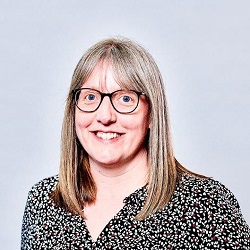 |
Professor Rachel Cooper, Newcastle University, UK Rachel Cooper is McArdle Chair in Ageing and Professor of Translational Epidemiology at Newcastle University, UK. For over 15 years Rachel has been applying a life course epidemiological approach to the study of a range of age-related health outcomes, including sarcopenia, with the aim of identifying opportunities across life to the support the development and maintenance of key aspects of health and wellbeing as people age. The ultimate goal of this research is to improve people’s chances of living healthier, active lives for longer and to reduce lifetime inequalities in these chances. Rachel promotes interdisciplinary translational research on ageing through her roles as co-lead for Interdisciplinary Research in the NIHR Newcastle Biomedical Research Centre and as co-lead of the UKRI (BBSRC-MRC) funded ART (Ageing Research Translation) of Healthy Ageing Network.
|
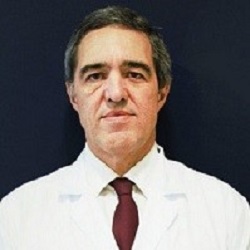 |
Professor Alfonso Cruz-Jentoft, Hospital Universitario Ramón y Cajal (IRYCIS), Madrid, Spain Alfonso J. Cruz-Jentoft (MD, PhD) is a specialist in Geriatric Medicine. He is currently Chair of the Geriatric Department at the Hospital Universitario Ramón y Cajal in Madrid, and Professor of Geriatrics at the Universidad Europea de Madrid, Spain. He also chairs the Spanish National Board of Geriatrics and is corresponding member of the Royal National Academy of Medicine of Spain. Founder and Past President of the European Geriatric Medicine Society (EuGMS), he is currently Editor-in-Chief of European Geriatric Medicine, the official journal of this society and coordinates the European Working Group on Sarcopenia in Older People (EWGSOP) and the Global Leadership Initiative in Sarcopenia (GLIS). Member of the WHO Clinical Consortium on Healthy Ageing, he represents Spain in the Board of the International Association of Gerontology and Geriatrics (IAGG) and serves in the Editorial Board of most major geriatric medicine journals (Age Ageing, J Am Geriatr Soc, JAMDA, JNHA, Aging Clin Exp Res).
|
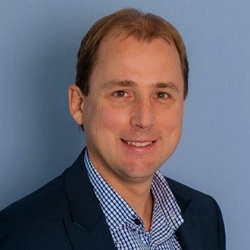 |
Professor Robin Daly, Deakin University, Australia Professor Robin Daly, PhD FSMF FASBMR, holds the position of Chair in Exercise and Ageing and is Head of the Musculoskeletal Health and Mobility group within the Institute for Physical Activity and Nutrition at Deakin University. He has over 25 years of experience in conducting clinical, translational and implementation trials to understand how exercise and nutritional approaches can prevent and manage diseases including sarcopenia, osteoporosis, falls and fractures, type 2 diabetes, certain types of cancer and cognitive related disorders. His recent research has focused on the role of digital technologies as a model of healthcare service delivery to manage chronic conditions in older adults. He has published (co-edited) 3 books and >235 peer-reviewed articles and been awarded >$21M in research funding. His work has led to the implementation of evidence‐based, community exercise programs and commercial nutritional products for musculoskeletal health and type 2 diabetes. He is a Past President of the Australian and New Zealand Society for Sarcopenia and Frailty Research, a member of the medical and scientific advisory committee of Healthy Bones Australia, a council member of the International Federation of Musculoskeletal Research Societies (IFMRS) and a Fellow of the American Society for Bone and Mineral Research (ASBMR). |
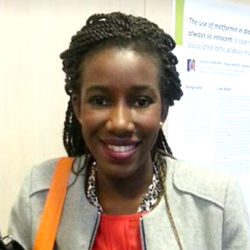 |
Dr Marie-Josiane Ebode-Ntsama, University of Yaounde, Cameroon Dr Marie-Josiane Ebode-Ntsama works as an Internist-Geriatrician in the acute geriatric unit of the Yaounde Central Hospital. She is a senior lecturer of Geriatrics at the Faculty of Medicine and Biomedical Sciences of the University of Yaounde I and a co-founder of the Cameroonian Geriatrics and Gerontology Society. She works on several studies in order to understand the course of ageing in sub-Saharan Africa where geriatrics-dedicated health services and policies on ageing are still scarce. Her current research focuses on sarcopenia, frailty and how to improve their detection and management taking into account local available resources. She is also interested on the identification of specific interventions in order to establish an age-friendly model of care in resource-limited settings. She tweets at @mj_ebodentsama
|
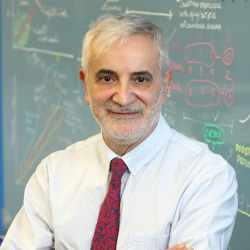 |
Dr Luigi Ferrucci, National Institute on Aging, USA Dr. Luigi Ferrucci is a geriatrician and an epidemiologist who conducts research on the causal pathways leading to progressive physical and cognitive decline in older persons. He has made major contributions in the design of many epidemiological studies conducted in the U.S. and in Europe. Dr. Ferrucci received a Medical Degree and Board Certification in 1980, Board Certification in Geriatrics in 1982 and Ph.D. in Biology and Pathophysiology of Aging in 1998 at the University of Florence, Italy. Between 1985 and 2002 he was Chief of Geriatric Rehabilitation at the Department of Geriatric Medicine and Director of the Laboratory of Clinical Epidemiology at the Italian National Institute of Aging. In September 2002, he became the Chief of the Longitudinal Studies Section at NIA. From 2002 to 2014 he was the Director of the Baltimore Longitudinal Study on Aging. Dr. Ferrucci is currently the Scientific Director of NIA, since May 2011. |
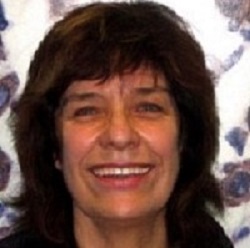 |
Professor Miranda Grounds, University of Western Australia, Australia For over 40 years the research of Professor Miranda Grounds based at the University of Western Australia has focussed on skeletal muscle biology, using mainly in vivo mouse models to investigate factors controlling the post-natal growth, muscle mass maintenance, damage and regeneration of normal and diseased muscles including age-related loss of muscle mass and function (sarcopenia) and muscular dystrophies. This research encompasses myogenesis, stem cells, growth factors, transplantation, inflammation, oxidative stress and the extracellular matrix, with potential applications to tissue engineering, muscular dystrophies and sarcopenia. A major focus is to strengthen pre-clinical research studies, in order to accelerate efficient development of clinical therapies, working in close collaboration with the international TreatNMD network.
|
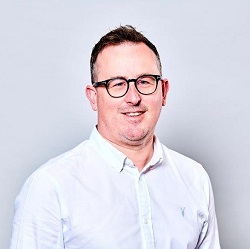 |
Dr Christopher Hurst, Newcastle University, UK Chris is a Research Associate within the AGE research group at Newcastle University and a British Association of Sport and Exercise Sciences (BASES) accredited Sport and Exercise Scientist. The early part of his career was focused on improving sports performance across a range of athletic populations before transitioning to apply these principles and experiences with older people during his PhD. Chris currently works across a range of studies aiming to understand more about the determinants and mechanisms underpinning the development of sarcopenia (the age associated decline in muscle mass and function). Alongside this, Chris is interested in optimising methods for accurately quantifying and assessing muscle mass and physical performance in older people. The other major strand of Chris’ work is focused on maximising the potential of exercise, particularly resistance exercise, for the prevention and treatment of sarcopenia in older people, particularly in those living with frailty and multiple long-term conditions. He tweets at @chrishurst99
|
|
|
Dr. Silke Hüttner, Rejuvenate Biomed, Belgium Dr. Silke Hüttner is Chief Medical Officer of Rejuvenate Biomed and is part of the Management Board. As CMO, she is responsible for medical input in all scientific, strategic and clinical development aspects of the company. She is a physician-scientist with 20 years of experience in the pharmaceutical industry combined with a background in Academic Research and Internal Medicine. Silke previously hold different positions in R&D and Clinical Development at Boehringer Ingelheim (BI) in Germany and in Translational Medicine at Galapagos in Belgium before she joined Rejuvenate Biomed in November 2021. |
|
|
|
|
|
Professor Reshma Merchant, National University Health System, Singapore A/Prof Merchant is a strong advocate for ageing in place and age-friendly healthcare system. She is a member of WHO Global Network on Long-term care (GNLTC) and recognised as a thought leader and special expert in policy, research and practice in fields associated with population ageing locally and by International Federation on Ageing. She holds many leadership positions at national advisory boards and part of the Ministry of Health Frailty Implementation Workgroup. She has won multiple clinical and teaching awards, the most recent one being the NUHS-Mochtar Riady Pinnacle Master Clinician Award in 2022. Her main areas of research interests are in sarcopenia, falls prevention, frailty and healthy ageing in community dwelling older adults. She is well published, co-author on many international consensus papers on frailty and sarcopenia and involved in many ongoing projects on healthy ageing such as the Queenstown Health District planning. She is the co-chief editor for the Journal of Nutrition, Health and Aging. She graduated from the University of Edinburgh and obtained her postgraduate qualification from the Royal College of Physicians, London, in 1999, where she worked for several years before returning to Singapore in 2001.
|
|
|
Professor Lynn Rochester, Newcastle University, UK Lynn Rochester is Professor of Human Movement Science in the Translational and Clinical Research Institute, Newcastle University and an academic physiotherapist. She holds an NIHR Senior Investigators Award. She co-leads the Digital Health Theme lead for the NIHR Biomedical Research Centre in Newcastle. Lynn set up and leads the Brain and Movement Research Group (BAM) (http://bam-ncl.co.uk/), a multidisciplinary group comprising clinicians, data scientists, psychologists and engineers with a focus on age related gait and mobility disorders. Her research interests are in ageing and neurodegenerative disease focused on the motor and non-motor mechanisms of gait and falls, surrogate markers of disease and disease progression (cognitive decline and falls risk), technological applications in healthcare using wearable sensors (digital biomarkers), and development and evaluation of novel interventions. Lynn is the Co-ordinator for Mobilise-D (www.mobilise-d.eu), a Public-Private Consortium funded by the European Innovative Medicines Initiative 2 Joint Undertaking, which aims to validate and obtain regulatory approval of mobility assessment using digital technology to enhance clinical trials and aid clinical management amongst other digital biomarker discovery projects. She takes a key role in academic and professional leadership and serves on multiple national and international committees. |
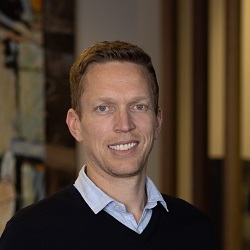 |
Professor David Scott, Deakin University, Australia Associate Professor David Scott (PhD, BHM Hons) is an exercise scientist with expertise in sarcopenia, obesity and osteoporosis, with a particular focus on their impact on disability in older adults. His epidemiological research has challenged the notion that obesity is protective against fractures in older populations, particularly in the setting of ‘sarcopenic obesity’. He currently leads several exercise and nutrition interventions for improving body composition and physical function in older adults with sarcopenia, obesity and osteoporosis, including self-management programs supported by digital health technologies. He is an Australian National Health and Medical Research Council Emerging Leadership Fellow and has published over 200 journal articles and books. He is the Chair of the Australian and New Zealand Society for Sarcopenia and Frailty Research’s Sarcopenia Diagnosis and Management Task Force and a member of the International Osteoporosis Foundation’s Committee of Scientific Advisors. |
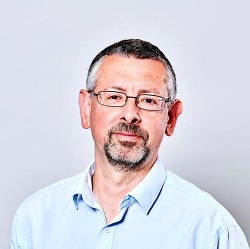 |
Professor Miles Witham, Newcastle University, UK Miles Witham is Professor of Trials for Older People in the NIHR Newcastle Biomedical Research Centre, Newcastle University, where he co-leads the Ageing, Sarcopenia and Multimorbidity Theme. He is also a consultant Geriatrician working in community settings. Professor Witham's research focusses on early and later-phase trials to test interventions targeting sarcopenia and other ageing syndromes including exercise, nutrition and medications. He also has a longstanding interest in improving inclusion of older people in research and in researching ways to improve how we design and deliver trials for older people. He tweets at @OlderTrialsProf
|
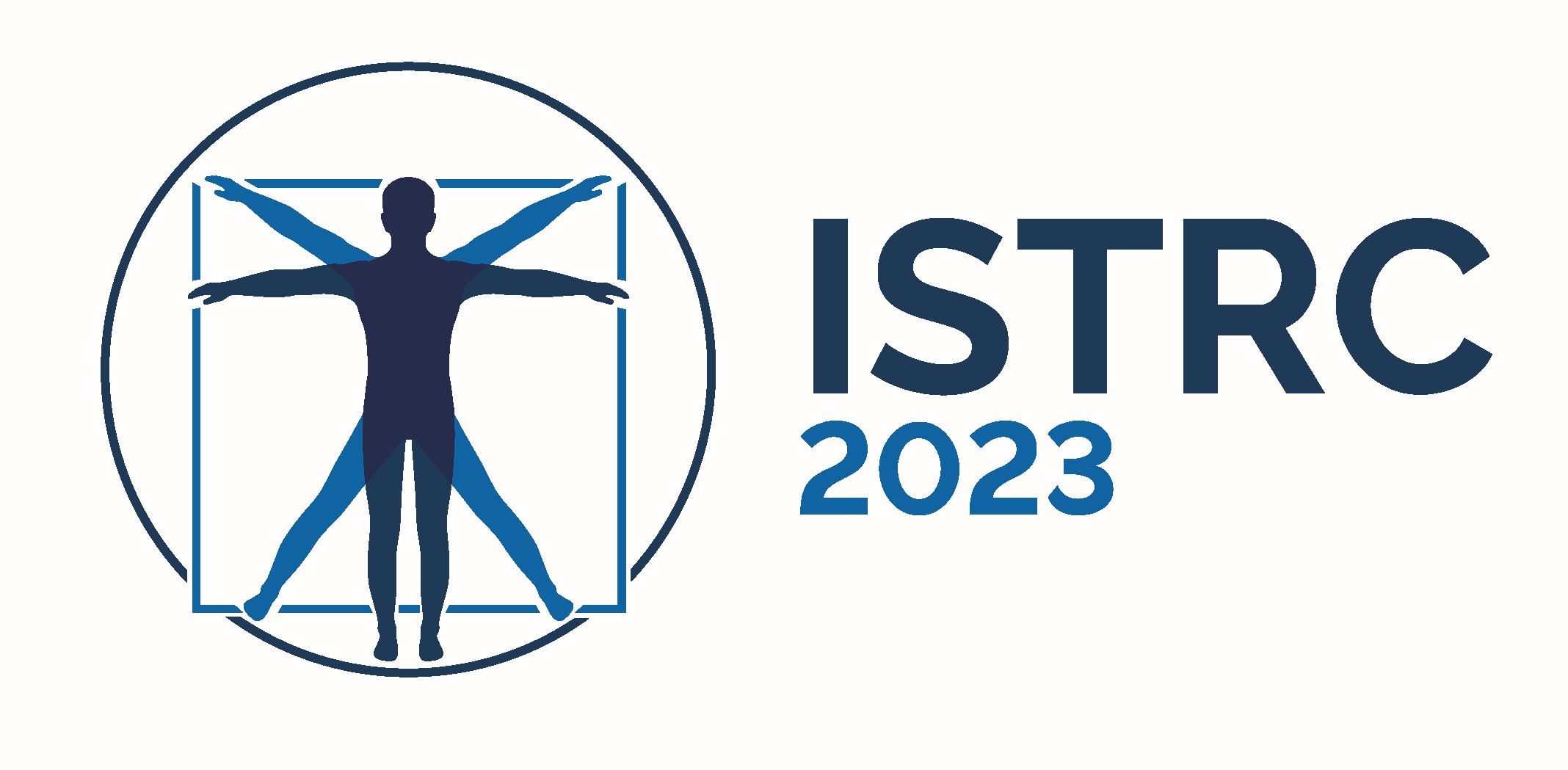
.jpg)
.jpg)



